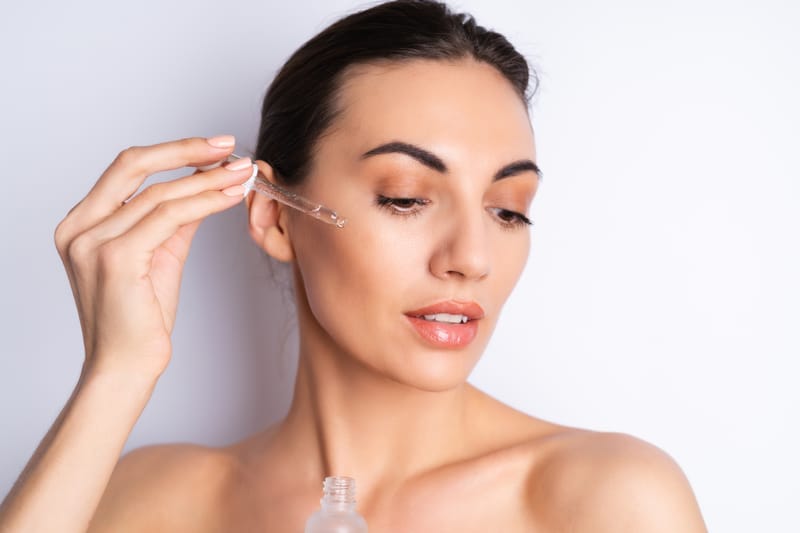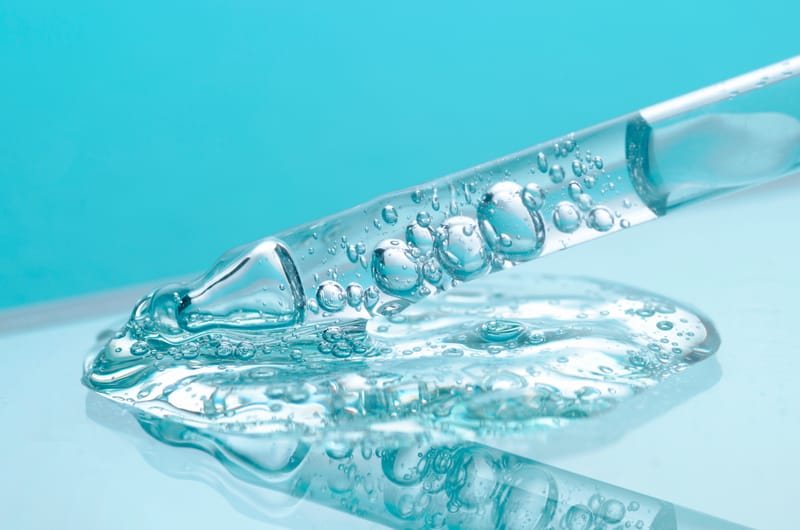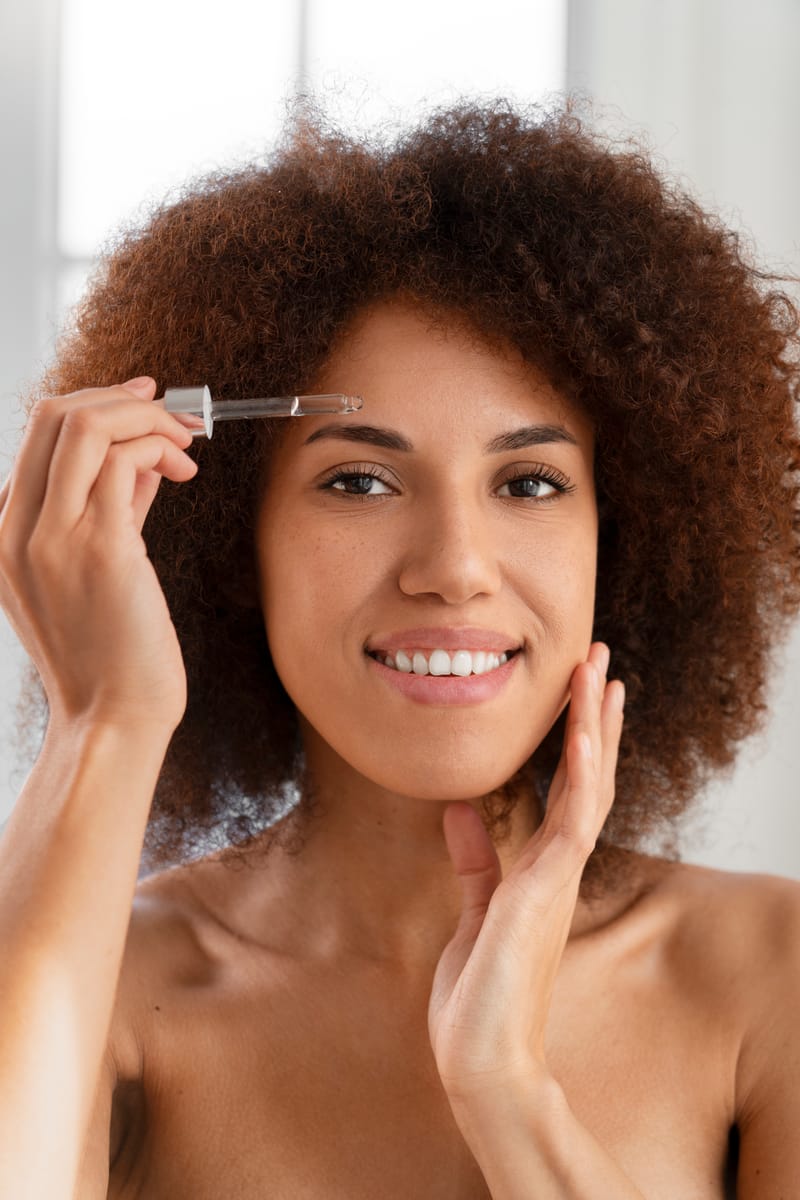Unlocking the Secrets of Peptide Serum: A Skincare Revolution
Key Takeaways:
- Peptide serums are potent skincare products that can significantly improve skin health and appearance.
- Understanding the types and functions of peptides can help you choose the right serum for your skin concerns.
- Regular use of peptide serum, as part of a comprehensive skincare routine, can lead to visible anti-aging benefits and enhanced skin repair.
Peptide serums have become a buzzword in the skincare community, promising rejuvenated and youthful skin. But what exactly is a peptide serum, and how does it work its magic on your skin? Let's dive into the science behind this skincare sensation and discover how it can transform your skincare routine.
Peptides are short chains of amino acids, which are the building blocks of proteins in our body, including collagen in the skin. When applied topically, these peptides act as messengers, signaling the skin to repair itself, which can lead to a more youthful and radiant complexion.
Types of Peptides
Copper Peptides are one of the most popular and effective peptides found in skincare products. Copper peptides help your body absorb more oxygen, resulting in improved hair and skin health. This peptide can help improve blood circulation in the scalp which helps maintain a healthy color, and make sure it doesn't prematurely gray. Copper peptide’s use of increased oxygen absorption has been reported to reduce wrinkles, repair damage from UV rays, and even out skin tone.
Signal peptides are also commonly used in skincare products as an anti-aging ingredient that increases collagen production. This type of peptide helps your body know when and where to send essential nutrients like collagen which help keep you looking young and reduce wrinkles by strengthening and replenishing skin cells. Signal peptides can be found in facial serums, creams, moisturizers, or masks that target dryness or other signs of aging on the face or any area needing it. It's a smart way to keep your skin looking youthful without using harsh chemicals or expensive procedures.
The Power of Peptides in Skincare
Peptide serums are like personal trainers for your skin, encouraging it to work harder and smarter. They come in various forms, each with a unique set of amino acids that target specific skin concerns. For example, signal peptides encourage collagen production, which can reduce the appearance of fine lines and wrinkles. On the other hand, enzyme inhibitor peptides can help prevent the breakdown of collagen, preserving your skin's natural firmness and elasticity.
Incorporating a peptide serum into your skincare routine is simple. After cleansing and toning, apply a few drops of the serum to your face and neck. Gently massage it into your skin, allowing the peptides to penetrate deeply and work their rejuvenating magic. Follow up with a moisturizer to seal in the benefits of the serum.
Does Peptide Serum Work?
Peptide serum is one of the most popular facial serums in the world, and it has been scientifically studied and proven to be effective in rejuvenating the skin. Working from within, peptides penetrate past the surface of the skin and target deep-seated areas that cause wrinkles or damage caused by age, sun exposure, or other factors. It works by stimulating collagen production, which help reduce wrinkles and firm up sagging skin. It also helps to diminish dark spots while providing nourishment and hydration to skin cells for optimal health.
In addition to helping restore damaged skin, peptide serum also assists in replenishing essential vitamins and minerals that may have depleted over time. This product works hard to retain moisture while removing toxins from the skin for a softer, smoother appearance overall. With continued use of peptide serum as part of your regular skincare routine, you can expect firmer skin with fewer signs of aging such as wrinkles, age spots and crow’s feet. The effectiveness of this product varies depending on an individual's goals for their skincare regimen so be sure to do research beforehand on how it could benefit you specifically.
Peptides vs Retinol
Peptides and retinol are two of the most popular ingredients used in skincare products. Peptides are short chains of amino acids that stimulate collagen production, which helps to improve skin firmness, elasticity, texture, and hydration to reduce the appearance of fine lines and wrinkles. Additionally, peptides can be used on all skin types as they are gentler than retinol. Retinol is a derivative of Vitamin A that works by increasing cell turnover rate to reduce the appearance of wrinkles, hyperpigmentation, and dull skin tone. Furthermore, it also stimulates collagen production to help improve skin structure.
When trying to decide between peptides or retinol for skincare purposes it’s important to consider their different mechanisms of action. Peptides are better suited for those who have sensitive skin because they are not as strong as retinol but still produce cumulative benefits over time. On the other hand, retinol is considered stronger than peptides so it provides more immediate results but it may cause redness or irritation in some individuals if they don’t gradually introduce it into their routine by starting with small doses once a week and slowly increasing frequency over time until their skin has
Choosing the Right Peptide Serum for Your Skin
With the plethora of peptide serums on the market, it can be overwhelming to select the right one. It's essential to consider your skin type and concerns. If you're looking to combat signs of aging, look for a serum that boasts a combination of signal and carrier peptides. For those with sensitive skin, opt for a serum with fewer ingredients to minimize the risk of irritation.
When shopping for a peptide serum, don't be swayed by fancy packaging or marketing hype. Instead, check the ingredient list for scientifically-backed peptides like Matrixyl, Argireline, or Copper Peptides. These ingredients have been shown to deliver results, making them a worthwhile investment for your skin.
Summary
Peptide serums are a game-changer in the realm of skincare, offering targeted treatment for various skin concerns. By understanding the different types of peptides and their functions, you can choose a serum that aligns with your skin goals. With consistent use, a peptide serum can lead to significant improvements in skin texture, firmness, and overall appearance, making it a valuable addition to any skincare regimen.
FAQ Section
Q: How often should I use a peptide serum? A: For best results, use a peptide serum twice daily, in the morning and at night, as part of your regular skincare routine.
Q: Can peptide serums be used with other skincare products? A: Yes, peptide serums can be layered with other skincare products. Apply them after cleansing and toning but before moisturizing. If you use other treatments like retinol or vitamin C, consult with a dermatologist to ensure compatibility.
Q: Are there any side effects to using peptide serums? A: Peptide serums are generally well-tolerated, but as with any skincare product, there's a chance of irritation, especially if you have sensitive skin. It's always recommended to perform a patch test before using a new serum widely. If you experience any adverse reactions, discontinue use and consult a skincare professional.
For more information about Peptide Serums please click the link below!







